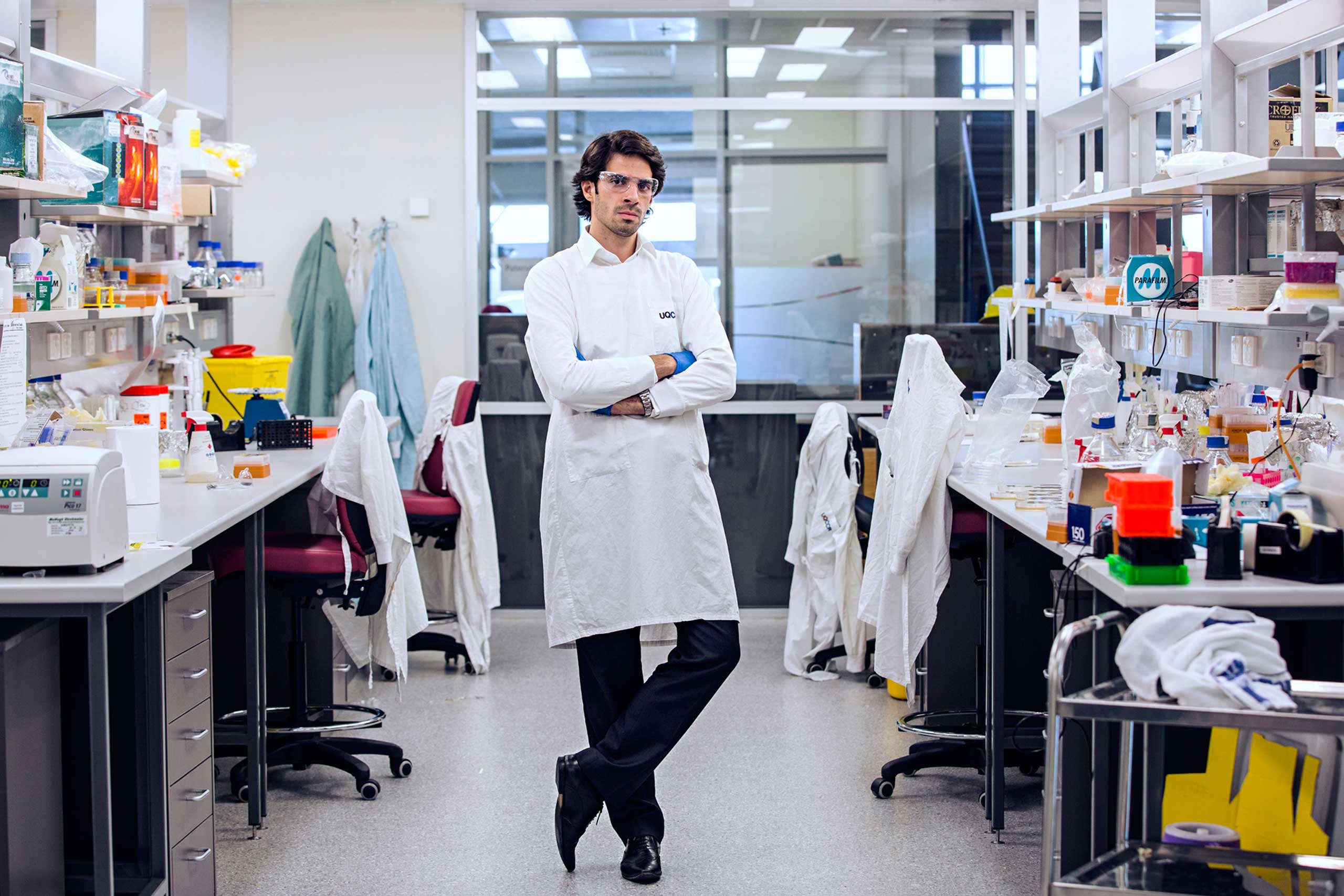In a world full of very clear and present dangers — like the Ebola virus, terrorism and climate change — some burgeoning global threats can remain below the radar, garnering comparatively little attention. Among that group are ordinary bacteria that have developed such resistance to antibiotics that scientists refer to them as superbugs. The World Health Organization says bacterial resistance has reached “alarming levels in many parts of the world” and warns that the problem is so serious, it threatens the achievements of modern medicine.
Among the researchers battling superbugs is Hosam Zowawi, a 30-year-old doctoral student in microbiology who decided to make drug-resistant bacteria the focus of his research after working as an infection-control trainee in a hospital in the Saudi city of Jeddah in 2006. Zowawi, who is a Saudi citizen, witnessed firsthand the problem of hospital-acquired infections: patients going into hospitals for crucial operations and acquiring infections there that led to disability and even death.
Now studying at the University of Queensland Centre for Clinical Research (UQCCR) in Brisbane, Australia, Zowawi is working on developing a rapid diagnostic test to identify bacterial infections. He says the test will take only three or four hours to detect superbugs rather than the current average of three days. It is just months away from being ready for use, he says.
Although the test relies on sophisticated, expensive machinery — which will limit its availability — Zowawi hopes it will be a first step toward ending the practice of doctors prescribing antibiotics on a trial-and-error basis because they don’t have the ability to make a rapid diagnosis in emergency situations.
In the past, the field of antimicrobial resistance research wasn’t too competitive, says Zowawi. That’s about to change. In July, the U.K.’s Nesta Foundation offered its Longitude Prize, worth nearly $16 million, to scientists who could create a cheap, point-of-care test for bacterial infections. Two months later, the White House also announced a $20 million prize for the development of the same kind of rapid diagnostic tool. Zowawi believes this surge in interest is a sign that world leaders are finally taking the superbug threat seriously, a threat that currently kills nearly 50,000 people a year in the U.S. and Europe alone.
“We’re still a fair way from Star Trek, where they wave a device and get an instant result, but Hosam’s work is significantly narrowing that gap,” says Dr. David Looke, president of the Australasian Society for Infectious Diseases.
Zowawi’s native Saudi Arabia and the surrounding Gulf states are among the regions of the world most impacted by superbugs. Poor prescription practices, a boom in medical tourism, and large numbers of both expatriates and refugees from conflict zones in the Middle East have all contributed a high prevalence of resistant bacteria in the region. Professor Peter Collignon, an infectious diseases physician at the Canberra Hospital, says the situation is worse in Saudi Arabia than it is in Australia. “It’s gotten to the point where many medical procedures can’t be carried out because of fear of secondary infection,” he says.

Once Zowawi began to focus his research on superbugs he quickly realized that there was an obvious lack of knowledge about the problem in the Gulf. “This was an area that needed to be studied, if only to help paint a global picture,” he says. Zowawi recently initiated a collaborative project between seven hospitals in the Gulf states, allowing them to share data to monitor the emergence of superbugs. He hopes it will develop into a formal superbug surveillance system, though this will require a lot more work and maintenance.
Zowawi is also raising awareness of the threat posed by antibiotic resistance in the Gulf states through an education campaign that began with him tweeting about the subject. He gives public lectures and makes appearances on television.
Omar Baz, a junior researcher who volunteered at Zowawi’s lab in Brisbane, says Zowawi taught him the importance of having goals. “He is not going after superbugs for personal gain,” he adds. “What matters to him is making an impact.”
In June, the Rolex Awards for Enterprise selected Zowawi as one of the watch manufacturer’s five Young Laureates for 2014, kicking in nearly $60,000 to help him pursue his work. Currently on a full scholarship from the Saudi government, Zowawi plans on eventually returning to Saudi Arabia to set up a biotech firm, where he will continue the development of diagnostic tests as well as working with hospitals to help them identify bacterial infections.
He believes the struggle against superbugs will be a long one. “Even if we have new antibiotics, bacteria will figure out a way to overcome them,” he says. “But if I wasn’t optimistic, I wouldn’t be doing this. I think we can tackle this.”
- Donald Trump Is TIME's 2024 Person of the Year
- Why We Chose Trump as Person of the Year
- Is Intermittent Fasting Good or Bad for You?
- The 100 Must-Read Books of 2024
- The 20 Best Christmas TV Episodes
- Column: If Optimism Feels Ridiculous Now, Try Hope
- The Future of Climate Action Is Trade Policy
- Merle Bombardieri Is Helping People Make the Baby Decision